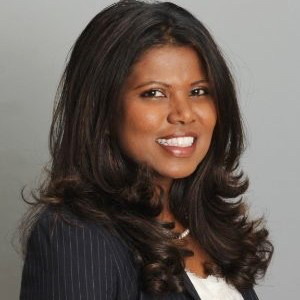This article was originally published in the January/February 2022 issue of San Diego Lawyer Magazine.
By Gayani R. Weerasinghe

Law was my path to empowerment. I have often shared parts from the story of how I came to work in law, but until recent years, I did not feel comfortable or safe sharing the full story of what changed the trajectory of my career — how I went from a graduate student pursuing a Ph.D. in biomedical research to an attorney practicing business and intellectual property law. I share my story here with the hope that this will create a safe space for someone else to open up, or at least give strength to anyone who is going through something similar now.
In 2004, I felt excited and fortunate to enter an exclusive Ph.D. program with Johns Hopkins University (JHU) and the National Institutes of Health (NIH); they only accepted two students that year, and I was one of them. It was a dream come true. The program allowed me to choose a clinical laboratory at NIH and also take classes at JHU. I was not new to NIH; I had already spent three years there as a post-baccalaureate fellow, and had published seven peer-reviewed journal articles based on original research when I entered the Ph.D. program.
As I started my Ph.D, I wanted to pursue a new area of research and challenge myself. I was fortunate to join one of the top labs for the subject I chose, with a world-renowned scientist as my thesis advisor. In 2005-2006, however, my dreams came crumbling down when this scientist (the head of the lab and my advisor), who was over 30 years older than me, decided to make inappropriate and unwanted suggestions to me in private. The lab was predominantly composed of men, with only a couple of female scientists who were fellows from other countries. I found myself isolated, hoping that maybe I was reading the situation wrong. Unfortunately, as anyone who has experienced this type of situation probably knows, that was not the case. Not only did his advances become more aggressive, but shortly thereafter, he directly propositioned me and threatened to withhold his support of my degree if I did not sleep with him. Even as I am sharing this today, 15 years later, I can feel the lump in my throat when I recall sitting in his office as he said those words and walking out in shock.
This article is not meant to be a narrative of the whole episode; however, this immediately caused me to have to switch labs, get a new advisor, file a report with NIH, and start my graduate studies over in a different lab, on a different subject. I also lost two years of work, as the lab I was originally in had special equipment and technology that was not supported elsewhere on the NIH campus. I was angry. I felt powerless. There was no chance of a just outcome because filing a lawsuit against such a scientist would have meant blackballing myself from the whole field and future job opportunities.
I had to take my losses and start over, which meant adding time to an already lengthy program. Ph.D. programs in biology usually last seven to eight years, but there are no guarantees; graduation is up to your thesis committee, consisting of your thesis advisor and other professors from the department. Each of those professors have their own graduate students, and often they are not eager to let you graduate because you are well-trained, cheap labor.
By 2009, my committee said I was looking at another four to five years before finishing. I was already disenchanted with bench science after my 2006 experience. At the same time, I found myself more passionate about women’s rights, equal opportunities, and wanting to fight unjust situations.
Fortunately, my younger sister was finishing law school as I was pondering my options. She encouraged me to think of law, as she knew the anger, powerlessness, and frustration I had experienced (and was experiencing).
Coming to law was the beginning of my path to taking back my power. It gave me the tools to feel empowered and made me feel like I could support others. Also, it gave me control over when I could finish my degree and enter the work field.
In her book The Path Made Clear, Oprah says: “Your life is not static. Every decision, setback, or triumph is an opportunity to identify the seeds of truth that make you the wondrous human being that you are.” Coming to law, I was able to release anger, find compassion, release powerlessness, find truth, release bitterness, find my voice, and become a better advocate. While my path to lawyering was not usual, I found my experiences led me to a better place where I can help others while feeling empowered.
Gayani R. Weerasinghe (gayani@lawgrw.com) is an Intellectual Property & Business Law Attorney, helping entrepreneurs, startups, and biotechs with their transactional needs.